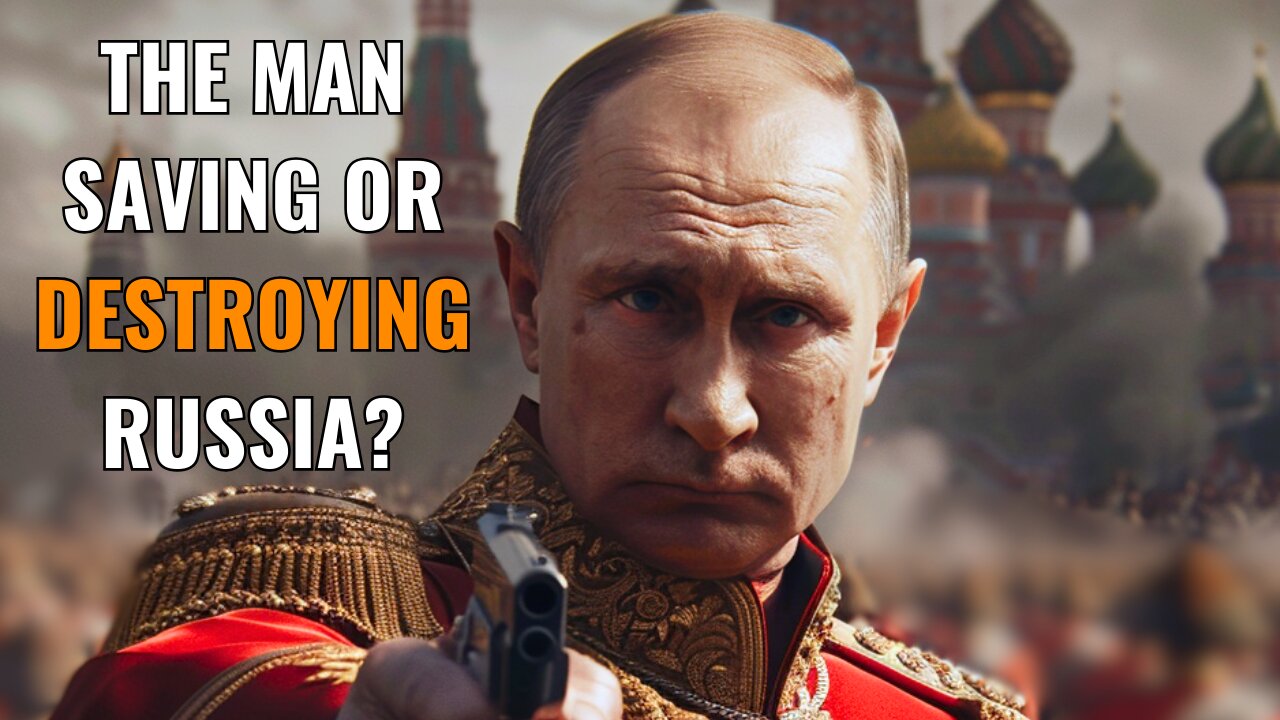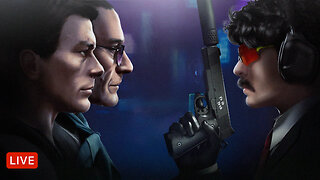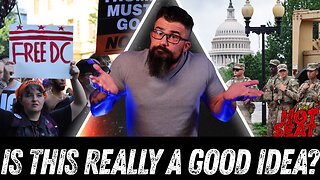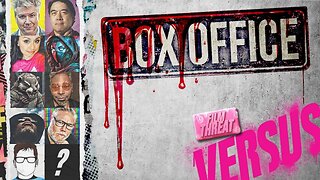Premium Only Content

From the KGB to a New Tsar? - Vladimir Putin
From the KGB to the Kremlin, and operating from the Caucasus to Crimea and beyond, how and why did Vladimir Putin become the man he is today?
Born on October 7, 1952, Putin's early years saw an austere Soviet-era apartment, common for many of his generation.
His father, a decorated veteran of the Soviet Navy in World War II, and his mother, a factory worker, instilled in him the values of hard work and patriotism from a young age.
It wasn't all grim, though; Putin found an outlet in judo, a sport where discipline and strategy converge— traits that would define his later career.
His prowess in judo wasn't just about physical strength; it helped shape his determination and tactical thinking.
Pursuing higher education, Putin graduated from Leningrad State University with a degree in law, a foundation that would serve him well in the intricate world of politics and intelligence.
His legal acumen caught the eye of the KGB, marking the beginning of a 16-year stint as an intelligence officer, a role that took him from the shadows of East Germany back to the Soviet Union's crumbling facade.
The disintegration of the Soviet Union could have been a dead-end for many in the KGB, but Putin saw it as an opening.
Leaving the KGB in 1991, he ventured into the political arena of Leningrad, now St. Petersburg.
Under the wing of Anatoly Sobchak, the city's reformist mayor, Putin sharpened his political skills, navigating the treacherous waters of post-Soviet Russia with a blend of pragmatism and ruthlessness.
This was just the prologue.
From the KGB to the Kremlin, and operating from the Caucasus to Crimea and beyond, how and why did Vladimir Putin become the man he is today?
Born on October 7, 1952, Putin's early years saw an austere Soviet-era apartment, common for many of his generation.
His father, a decorated veteran of the Soviet Navy in World War II, and his mother, a factory worker, instilled in him the values of hard work and patriotism from a young age.
It wasn't all grim, though; Putin found an outlet in judo, a sport where discipline and strategy converge— traits that would define his later career.
His prowess in judo wasn't just about physical strength; it helped shape his determination and tactical thinking.
Pursuing higher education, Putin graduated from Leningrad State University with a degree in law, a foundation that would serve him well in the intricate world of politics and intelligence.
His legal acumen caught the eye of the KGB, marking the beginning of a 16-year stint as an intelligence officer, a role that took him from the shadows of East Germany back to the Soviet Union's crumbling facade.
The disintegration of the Soviet Union could have been a dead-end for many in the KGB, but Putin saw it as an opening.
Leaving the KGB in 1991, he ventured into the political arena of Leningrad, now St. Petersburg.
Under the wing of Anatoly Sobchak, the city's reformist mayor, Putin sharpened his political skills, navigating the treacherous waters of post-Soviet Russia with a blend of pragmatism and ruthlessness.
This was just the prologue.
From the KGB to the Kremlin, and operating from the Caucasus to Crimea and beyond, how and why did Vladimir Putin become the man he is today?
Born on October 7, 1952, Putin's early years saw an austere Soviet-era apartment, common for many of his generation.
His father, a decorated veteran of the Soviet Navy in World War II, and his mother, a factory worker, instilled in him the values of hard work and patriotism from a young age.
It wasn't all grim, though; Putin found an outlet in judo, a sport where discipline and strategy converge— traits that would define his later career.
His prowess in judo wasn't just about physical strength; it helped shape his determination and tactical thinking.
Pursuing higher education, Putin graduated from Leningrad State University with a degree in law, a foundation that would serve him well in the intricate world of politics and intelligence.
His legal acumen caught the eye of the KGB, marking the beginning of a 16-year stint as an intelligence officer, a role that took him from the shadows of East Germany back to the Soviet Union's crumbling facade.
The disintegration of the Soviet Union could have been a dead-end for many in the KGB, but Putin saw it as an opening.
Leaving the KGB in 1991, he ventured into the political arena of Leningrad, now St. Petersburg.
Under the wing of Anatoly Sobchak, the city's reformist mayor, Putin sharpened his political skills, navigating the treacherous waters of post-Soviet Russia with a blend of pragmatism and ruthlessness.
This was just the prologue.
-
 41:26
41:26
Kimberly Guilfoyle
2 hours agoMaking DC Safe Again, Live with Daily Signal's Tyler O'Neil | Ep249
59.6K16 -
 LIVE
LIVE
Dr Disrespect
6 hours ago🔴LIVE - DR DISRESPECT VS. JEAN-CLAUDE VAN DAMME - HITMAN
1,360 watching -
 32:43
32:43
Uncommon Sense In Current Times
4 days agoAre Women’s Sports Under Attack? | Penny Nance on Protecting Title IX & Biblical Truth
9.57K -
 LIVE
LIVE
LFA TV
22 hours agoLFA TV ALL DAY STREAM - MONDAY 8/25/25
1,121 watching -
 LIVE
LIVE
freecastle
7 hours agoTAKE UP YOUR CROSS- PROTECTING FREEDOM, PRESERVING HOPE!
144 watching -
 1:17:44
1:17:44
The HotSeat
2 hours agoTrump Drops Hammer: Burn the Flag = 1 Year Prison! Army Deployment Next?!
17.7K23 -
 1:30:12
1:30:12
Jamie Kennedy
21 hours agoThe Truth About Anger, Race, & Feminine Energy w/ Jesse Lee Peterson | Ep 219 HTBITY
14.1K3 -
 1:45:39
1:45:39
The Quartering
7 hours agoMMA Fighter Tries To K*LL Wrestler, Hollywood PANIC & Sam Tripoli's Favorite Conspiracies
147K169 -
 1:05:04
1:05:04
Mark Kaye
6 hours ago🔴 Trump Sends Dems Into RAGE Over Flag Burning Executive Order
21.4K22 -
 1:55:55
1:55:55
Film Threat
20 hours agoVERSUS: AUGUST BOX OFFICE BLOOD BATH! MARVEL IS COOKED! | Film Threat Versus
11.4K